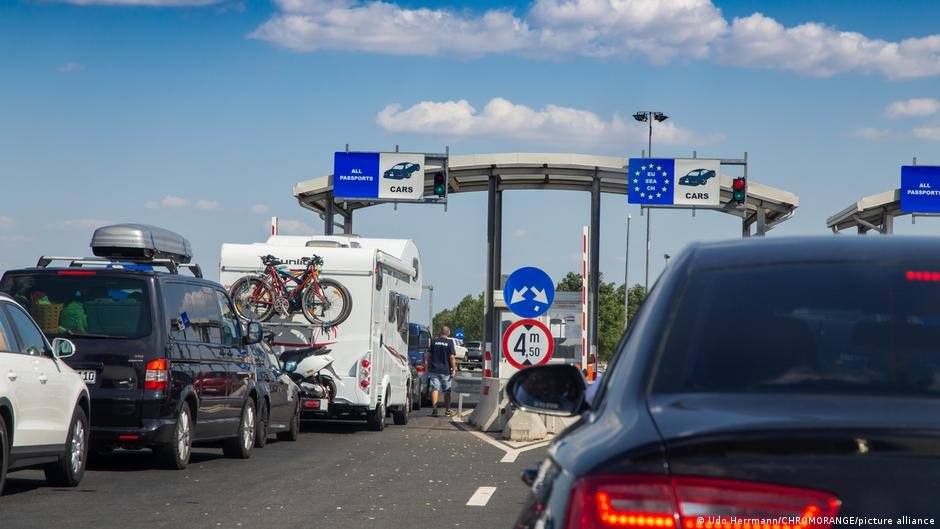Austria: Ready to relax objections to widening Schengen zone
Source: InfoMigrants: reliable and verified news for migrants – InfoMigrants
Austria has indicated it might be willing to relax its opposition to Romania and Bulgaria joining the free-movement Schengen zone. The new proposals would only apply to air travel, the country said.
Austria said it could imagine relaxing its opposition to the inclusion of Romania and Bulgaria in the European Union’s free-movement Schengen zone if the two countries were willing to “massively strengthen the protection [of the bloc’s] external borders,” reported the French news agency Agence France Presse (AFP).
The relaxation would only apply to air travel, stipulated Austria, explaining that Romania and Bulgaria should continue carrying out checks and controls at their land borders, reported the news agency Reuters.
A year ago, Austria vetoed Bulgaria and Romania’s entry into the zone, saying the increase in the number of asylum seekers trying to enter Europe would grow if Schengen was expanded.
Also read: Germany, irregular migration drops due to new border checks
Under the rules of the Schengen treaty, borders are meant to remain open to allow for free traffic and movement between fellow member states. However, in recent years, temporary border checks have been reinstated at many of the EU’s internal borders, even between fellow Schengen members like Germany and Austria, to try and control the number of migrants attempting to pass through without the correct papers.
Joining the Schengen zone
Despite being EU member states, neither Bulgaria nor Romania are part of the Schengen zone. Many migrants cross through the two countries on their way up the so-called Balkan route toward regional neighbors that are party to the Schengen treaty, like Hungary or Croatia.
There are 27 members of Schengen, including Austria, Belgium, Croatia, Czechia, Denmark, Estonia, Finland, France, Germany, Greece, Hungary, Iceland, Italy, Latvia, Liechtenstein, Lithuania, Luxembourg, Malta, the Netherlands, Norway, Poland, Portugal, Slovakia, Slovenia, Spain, Sweden and Switzerland.

Austria’s Interior Minister Gerhard Karner told the Austrian public radio Oe1 on Monday that he could imagine there could be “changes in terms of airports for Romania and Bulgaria, but on the other hand there are clear demands [in exchange for that.]”
Also read: Schengen faces crisis as Europe accelerates on repatriations
Those demands, Karner said, would include not only continuing to strengthen the bloc’s external borders, but also allowing for the transfer of asylum seekers back to Bulgaria and Romania. Karner said he would leave the final decision up to the European Commission.
Austria demands more border police
Karner expects Bulgaria and Romania to triple the number of police deployed at their borders and to upgrade their technical equipment — especially along Bulgaria’s border with Turkey and Romania’s border with Serbia, reported Reuters.
Brussels replied that it had heard Austria’s request and felt that “things are moving in a positive direction.” A spokesperson for the European Commission, Christian Wigand, said at a daily press briefing that discussions would “continue” and that the “Commission is ready to provide its support as necessary.”
Also read: Border checks back in several European countries
Romania’s Prime Minister, Marcel Ciolacu, said he welcomed the news. He called it “the first step, the most important one” and welcomed Austria’s “more flexible” approach. Ciolacu said he was hopeful that Romania could join the Schengen zone at some point in 2024, adding that Austria’s demands did not “seem exaggerated.”
Bulgaria, however, didn’t appear to welcome the news quite as wholeheartedly. Prime Minister Nikolay Denkov said that Austria’s concession was a “step in the right direction,” but that he refused to be “treated as a second-class state.”
Bulgaria and Romania joined the EU in 2007 and have waited more than ten years to be admitted to Schengen. They were refused in 2022, with Austria vetoing both their applications.
Austria’s governing conservative People’s Party (OVP) has made migration one of its key election campaign planks ahead of an expected election in 2024. The far-right Freedom Party also campaigns on strict migration controls and is currently polling ahead of the OVP.
With AFP and Reuters
The original article: belongs to InfoMigrants: reliable and verified news for migrants – InfoMigrants .




